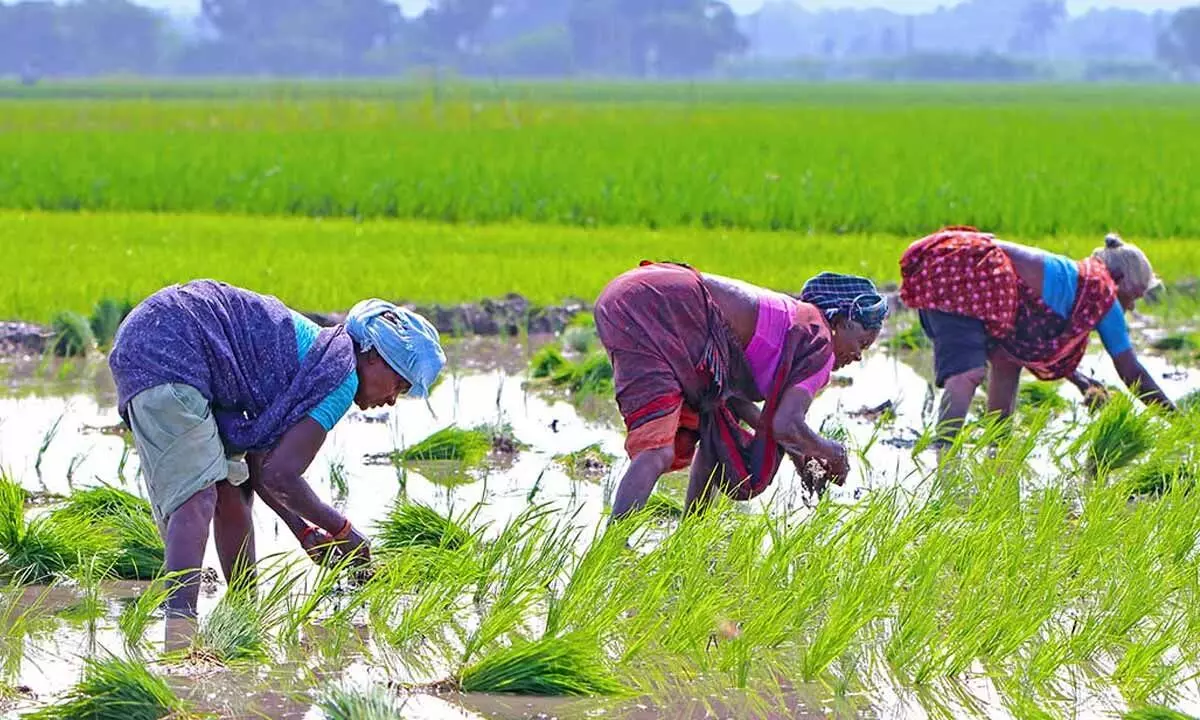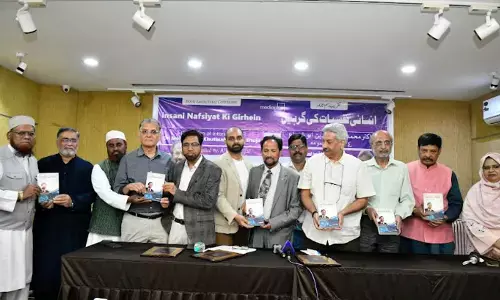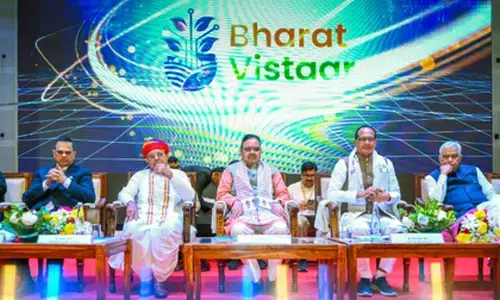Agriculture: Navigating challenges and embracing opportunities

India, the sixth-largest economy in the world, still relies heavily on agriculture as a primary source of livelihood for a significant portion of its population.
India, the sixth-largest economy in the world, still relies heavily on agriculture as a primary source of livelihood for a significant portion of its population. Despite its contribution to the national GDP declining to around 14%, agriculture remains crucial, especially in rural areas. The sector employs over 45% of the workforce and supports millions of households, making it vital for rural development and allied industries like dairy, poultry, and fisheries.
Several factors contribute to agriculture's declining economic share. Rapid growth in industrial and service sectors has outpaced agriculture's expansion, while the sector struggles with stagnating productivity due to limited adoption of scientific practices and modern technology. Fragmentation of landholdings and climate variability also threaten sustainable agricultural productivity.
Climate change poses a significant challenge to Indian agriculture, affecting yields, crop viability, and regional sustainability. Rising temperatures are expected to reduce wheat yields by 4-5% for every 1°C increase, with similar declines in rice and maize. Erratic monsoon patterns, droughts, floods, and cyclones have damaged millions of hectares, especially in vulnerable states.
India's agricultural policy framework includes tools like Minimum Support Price (MSP), input subsidies, and loan waivers. However, these tools have limitations, such as encouraging mono-cropping, overuse of fertilizers, and water wastage. Recurring implementation challenges and lack of integrated policy design weaken these interventions' long-term effectiveness.
_Technological Transformation: A Ray of Hope_
The rise of smart and precision farming offers a powerful solution to address productivity, sustainability, and resource efficiency concerns. Innovations powered by IoT, big data, and automation can revolutionize agriculture. Digital tools and real-time insights can empower farmers to make better decisions, reducing risks and improving yields.
Technology can strengthen India's weak agricultural supply chains by enabling direct connections between farmers and markets, reducing intermediaries, and enhancing transparency. Efficient supply chains can lower post-harvest losses, improve storage and distribution, and ensure better pricing for produce.
Realizing the potential of agri-tech requires a focus on inclusivity. Small and marginal farmers face significant barriers in accessing technologies, including financial constraints, lack of awareness, and digital illiteracy. Public-private partnerships can play a key role in building rural digital infrastructure and offering financial incentives for technology adoption.
The path forward for Indian agriculture lies in making it resilient, sustainable, and inclusive. Future food systems must ensure food security, address nutritional needs, improve farmer incomes, and safeguard the environment. This requires reimagining policies, encouraging crop diversification, and boosting value addition through agri-processing and branding.
India's agricultural sector is at a critical juncture, facing challenges like climate stress, policy inefficiencies, and outdated practices. However, with the right mix of innovation, investment, and inclusive policy design, Indian agriculture can be transformed into a future-ready ecosystem that uplifts farmers, ensures food and nutritional security, and supports environmental sustainability. The task is urgent, and the time for action is now.
(The author is CEO and co founder of Agrifields DMCC in Dubai)








